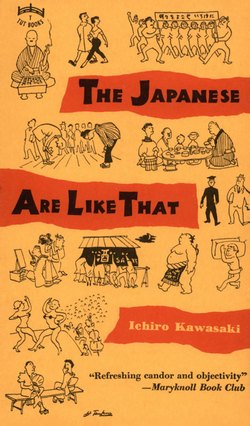Japanese are Like That

Реклама. ООО «ЛитРес», ИНН: 7719571260.
Оглавление
Ichiro Kawasaki. Japanese are Like That
Отрывок из книги
The Japanese Are Like That
THE Japan of the gorgeous cherry blossoms, the beautiful geisha, and the sublime Mt. Fuji has been told and retold in a thousand and one books published throughout the world during the past century. But this is not the real Japan with which the rest of the present-day world is vitally concerned. The Japan which the world must come to know is the new Japan, the reborn Japan. When I say reborn, I am contrasting the new Japan with that Japan which rose meteorically from an Oriental, historic obscurity to rank as one of the world's foremost powers, which rocked the whole world for several years with a fanatical war, to be finally laid prostrate by a catastrophic defeat, the first in its long history. The reborn Japan of which I speak starts perhaps at the same point at which it found itself more than a half-century ago, and only by understanding this new Japan can one hope to predict its future course.
.....
The average Japanese seems to be under the impression that all Americans go about very fashionably dressed. In the postwar craze to copy everything American, our people go to great lengths to imitate American styles and dress and do so rather ostentatiously. We were therefore quite bewildered to find that both American men and women were not particularly fussy about their clothes and that they were rather modestly dressed. How this contrasts with the Japanese situation, where many of us even go broke in our eagerness to be fashionably dressed; our vanity seems to know no bounds in this respect!
In the matter of eating, too, the average American is more sensible and budget-conscious. Many Japanese visitors to the United States since the war, despite the thinness of their pocketbooks, wish to dine at the very best restaurants. Not knowing Duncan Hines, they merely go to the most expensive hotels in the hope of getting an epicurean meal. They were in many cases frankly disappointed. Ubiquitous self-service cafeterias are a unique American institution. One member of my group wondered if a similar cafeteria system introduced into Japan might not be a success. I expressed my opinion against such a venture. In a country like ours, where labor is cheap and plentiful, the people would rather be waited on in restaurants than stand in a "chow line." Moreover, the standard of living being so much lower in Japan makes it impossible for us to prepare or display as many dishes to choose from as are shown in American cafeterias. In point of fact, no one in my country, in spite of the widespread craze for things American, has to date introduced an American-style cafeteria, let alone an automat. However, we do have laundromats, though not many.
.....